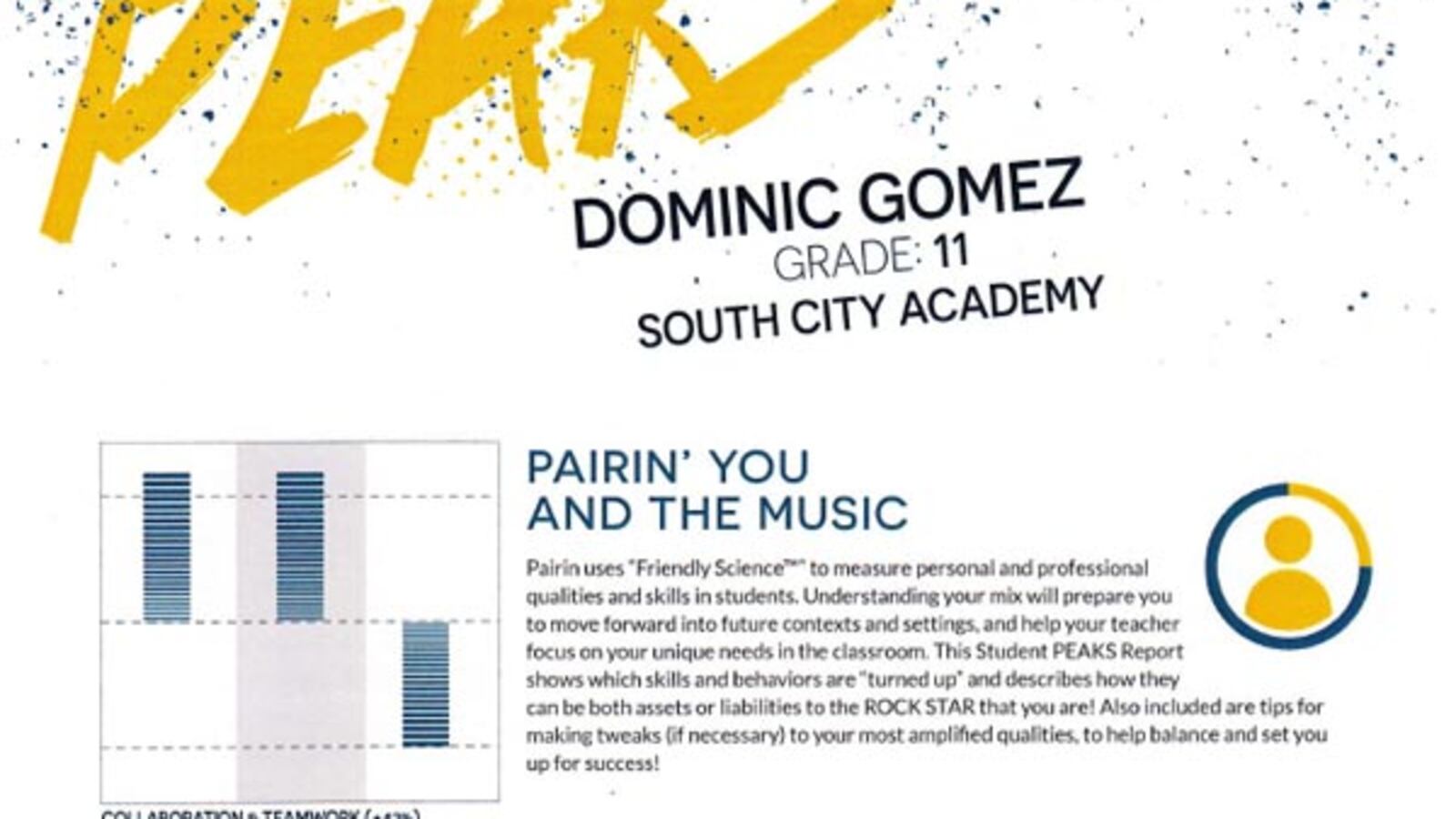The riddle of 21st century skills — the broad term often used to describe a set of abilities like critical thinking and collaboration — has always has been about how to measure them. But now an alliance of education groups think they have a way to do that.
The groups this week unveiled Project: BeReady, an online survey designed to indicate students’ abilities in such non-academic areas as professionalism, entrepreneurial skills, personal traits and civic awareness.
“We’re all looking at these 21st century skills, but there’s no tool to measure them,” said Kathryn Harris, a development officer for Generation Schools Network, an education management non-profit.
Michael Simpson, CEO of Pairin, said of the new tool, “This is really about whole student development.” Pairin is a Denver talent and personnel evaluation company that is teaming with Generation Schools, which in Colorado operates a school at Denver’s West High School and is working in the Englewood district.
He said his company got involved in the project because it decided “the biggest impact we could make is to fill that [job] pipeline with qualified applicants.”
Harris, Simpson and others spoke to about 125 invited guests at a Tuesday event in Denver intended to describe the project’s pilot phase, launch a two-year second phase intended to involve 10,000 students and make a subtle fundraising pitch.
The Project: BeReady survey is an online test that allows a user to build a description of herself by selecting whether words and phrases accurately describe them or not. Simpson said it’s based on psychological research dating back to the late 1940s. Developers came up with a detailed list of skills the survey is supposed to test for (see full list at bottom of story). Learn more on the project’s website.
During field testing earlier this year in Colorado, adults took about 12 minutes to finish the survey, and students took about 22 minutes, Simpson said. The current version of the survey is designed for students in 8th grade and above, although promoters hope to eventually develop a version for younger students.
Project: BeReady also is developing tools to help teachers learn how to use the test and a dashboard that will allow teachers and administrators to view and analyze both individual student and aggregated data.
Testing, privacy concerns raised
Project backers acknowledged public concerns about testing and student data privacy in their remarks.
“Project: BeReady is not about just another test,” said Generation Schools executive Mary Cipollone, stressing it’s about giving students, parents and teachers information they don’t have now. “It is not about more data.”
Asked about the ill-fated inBloom data project, Simpson said, “The biggest problem inBloom has was lack of communication, or lack of effective communication. … There were a lot of misconceptions that weren’t addressed until it was too late.”
He added, “I think we know how to communicate in a way that won’t give people the wrong impression.”
Simpson also said the project has strict privacy controls. (See privacy policy here, and the project’s Student Bill of Rights here.)
In an effort to differentiate itself, the project’s website also has a detailed “Is/Is not” section.
What’s next
Generation Schools and Pairin, using about $875,000 of their own money, earlier this year developed the survey and related tools and gave the survey to about 5,900 students in 3,500 adults in Colorado.
Starting in September, the project plans to start a two-year pilot project involving 10,000 students around the country.
“We’re looking to scale this across Colorado and, we think, across the nation,” Harris said.
And, backers are hoping to raise $320,000 to help schools and youth development groups pay for participating and an additional $623,000 to support further development of the tools and professional development for teachers and administrators in using the system and analyzing data.
The project’s business plan envisions charging $10,000 per site and $10 per student a year for the service, which Simpson termed “really, really affordable.”
Who’s involved
The idea originated with Generation Schools and Pairin, but the project’s steering committee also includes representatives from the Colorado Education Initiative (formerly the Colorado Legacy Foundation), Department of Education, Colorado Community College System, Accenture Foundation, Gill Foundation, Donnell Kay Foundation, Get Smart Schools, Colorado Succeeds and Academy School District.


